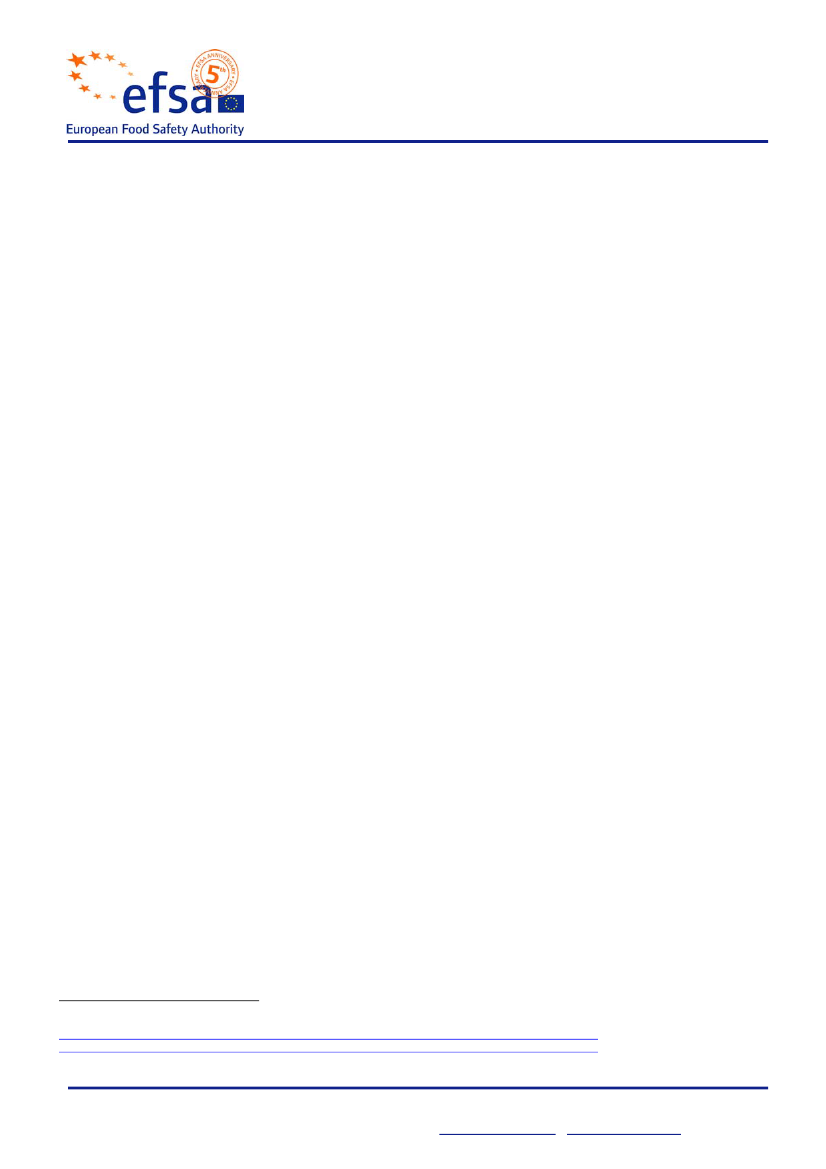
Parma, 28 June 2007
PRESS RELEASE
EFSA reaffirms its risk assessment
of genetically modified maize MON 863
At the request of the European Commission (EC), EFSA has examined a paper by Séralini et al. on
the statistical evaluation of a 90-day feeding study in animals with genetically modified maize MON
863, to identify any consequences for EFSA’s risk assessment of the safety of MON 863.
1
The paper
presents an alternative statistical analysis of the 90-day rat study that was considered in the
original risk assessment. Following a detailed statistical review and analysis by an EFSA Task
Force, EFSA’s GMO Panel has concluded that this re-analysis of the data does not raise any new
safety concerns.
EFSA undertook a series of actions to give a considered response to the European Commission on this
issue:
-
Member States (MS) were asked to provide any analyses and comments that may contribute to
consideration of this issue.
EFSA set up a Task Force of internal and external statistical experts to help assess the statistical
methodology applied by authors of the publication in their re-analysis of the original data from the
90-day rat feeding study and to consider the contributions received from MS. As part of that work
a meeting was held with the authors of the paper.
EFSA’s GMO Panel has reviewed all the available evidence.
-
-
Following this work, EFSA has responded to the Commission, published a statistical report and issued a
scientific statement from its GMO Panel. The main conclusions are:
-
The statistical analysis made by the authors of the paper did not take into account certain
important statistical considerations. The assumptions underlying the statistical methodology
employed by the authors led to misleading results.
EFSA considers that the paper does not present a sound scientific justification in order to question
the safety of MON 863 maize.
Observed statistically significant differences reported by Monsanto, Séralini et al., and EFSA,
were considered not to be biologically relevant. In the absence of any indications that the observed
differences are indicative of adverse effects, the GMO Panel does not consider that this paper
-
-
1
The scientific opinions are available at EFSA website at
http://www.efsa.europa.eu/etc/medialib/efsa/science/gmo/gmo_opinions/381.Par.0001.File.dat/opinion_gmo_06_en1.pdf
http://www.efsa.europa.eu/etc/medialib/efsa/science/gmo/gmo_opinions/383.Par.0001.File.dat/opinion_gmo_07_en1.pdf
European Food Safety Authority - Largo N. Palli 5/a, I - 43100 Parma
Tel: (+39) 0521 036 111 • Fax: (+39) 0521 036 110 • [email protected] • www.efsa.europa.eu